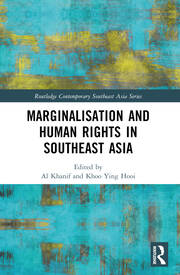Archill Niña Faller-Capistrano

ABSTRACT
Southeast Asia has been more vigilant with regard to children’s rights since the United Nations Convention on the Rights of the Child came into force in 1990. Regionally, the Philippines is a recognised champion of treaty-ratification and child-friendly legislation. Nevertheless, domestic progress in child rights discourse contrasts with a slide towards punitive policies, with the realities of fluid abuse embedded in both the public and private spheres of children’s lifeworlds. Using a developmental legal aid perspective and informed by the concept of liquid modernity, this chapter juxtaposes official reported compliance with child rights governance against alternative reports compiled by civil society actors—in particular those by the Children’s NGO Network—to identify gaps between existing child rights frameworks and their continuing vulnerabilities. This chapter argues for more fluid mechanisms to uphold children’s rights, which engage not just duty-bearers such as governments, families and communities but also the children themselves as rights-holders.
Link to the Article